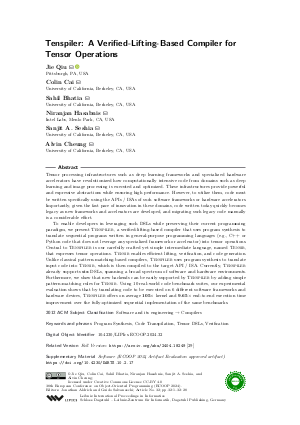LIPIcs.ECOOP.2024.32.pdf
- Filesize: 6.56 MB
- 28 pages

 Creative Commons Attribution 4.0 International license
Creative Commons Attribution 4.0 International license














Feedback for Dagstuhl Publishing